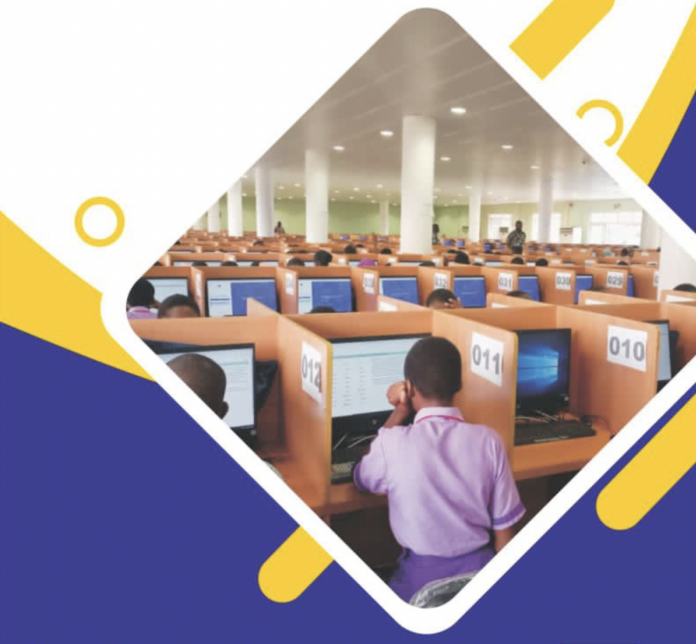The Federal Government has launched a nationwide monitoring and evaluation exercise to eliminate unregistered schools operating as so-called “miracle centres” across Nigeria.
The initiative, led by the Federal Ministry of Education, began with inspections in the Federal Capital Territory, aiming to curb exam malpractice and ensure educational standards.
A “miracle centre” is a term used in Nigeria to describe schools known for aiding students in cheating during examinations, guaranteeing high scores regardless of the students’ academic abilities. These centres have been linked to widespread corruption in the education sector, undermining the credibility of the nation’s examination system.
During a visit to Redeemer Teap International School in Abuja, Team Lead from the Ministry, Rukayat Ibrahim, emphasized the government’s commitment to eradicating these centres.
“This activity is a nationwide assessment taking place simultaneously in all states, including the FCT,” Ibrahim stated. “The goal is to cover as many schools as possible and provide reports for the ministry’s management to understand what is happening on the ground.”
Ibrahim, who also serves as Deputy Director in the Federal Education Quality Assurance Service (FEQAS), explained that the exercise is designed to restore integrity to Nigeria’s examination system by ensuring schools adhere to regulatory standards.
Crackdown on Exam Malpractice
The government’s renewed effort to fight exam malpractice comes after a similar initiative in 2007 led to the blacklisting of several schools. Between 2008 and 2010, this crackdown resulted in what education experts described as the most ethics-friendly exam years in Nigeria’s history.
Speaking on the importance of the current exercise, Yinka Amodu, a representative from the FEQAS department, stressed the need for rigorous evaluation.
“If there are no checks and balances, the educational system in this country will not grow. We cannot continue doing the same thing and expect different results,” Amodu said.
He further highlighted that the monitoring is not limited to private schools but includes public schools, crèches, and early childhood education centres.
Amodu recalled the discovery of numerous “kangaroo schools” during the 2007 inspection. These were unregistered institutions with unqualified teachers and poor learning environments, contributing to widespread exam fraud.
A Nationwide Initiative
The current monitoring exercise is happening simultaneously across all states, ensuring thorough coverage and evaluation of schools.
The ministry’s criteria for assessment include skills development, conducive learning environments, classroom space, laboratory equipment, ICT facilities, clinics, and perimeter fencing, among other educational standards.
Commitment to Improvement
During the inspection at Redeemer Teap International School, Principal Oladimeji Yusuf pledged to address areas needing improvement as identified by the monitoring team.
“We are committed to working with the ministry to enhance our educational standards and provide adequate facilities for our learners and teachers,” Yusuf said.
A History of Exam Malpractice
Miracle centres have long been a menace to Nigeria’s educational system, exploiting loopholes to manipulate exam results. In some cases, students pay exorbitant fees to guarantee high grades, thereby undermining the credibility of national examinations.
In 2007, the Federal Ministry of Education launched its first major crackdown on these centres. This exercise exposed schools operating without proper registration, employing unqualified teachers, and using dilapidated buildings unfit for learning.
The result was the blacklisting of several schools, restoring some level of integrity to the examination system between 2008 and 2010. However, the resurgence of miracle centres in recent years prompted the government to renew its fight against the malpractice.
Stakeholders’ Reactions
The nationwide monitoring exercise has been met with mixed reactions from education stakeholders. While many parents and educators support the initiative, others have raised concerns about the sustainability of the crackdown.
An education analyst, Dr. Funke Ajayi, praised the government’s effort but emphasized the need for continuous monitoring.
“Periodic inspections are good, but they must be sustained. The government should also consider reforming the examination system to make it more transparent and credible,” Ajayi stated.
On the other hand, some school proprietors have expressed fears of victimization and harassment by government officials during the exercise.
A Call for Collective Action
The Federal Ministry of Education has called for the cooperation of all stakeholders, including parents, teachers, and school owners, to ensure the success of the exercise.
“This is not just about cracking down on miracle centres; it’s about safeguarding the future of our children and the credibility of our educational system,” Ibrahim explained.
The ministry also urged parents to verify the registration status of schools before enrolling their children, warning that defaulters would face severe sanctions.
Towards a Credible Examination System
The nationwide monitoring exercise is expected to run for several weeks, with findings compiled and submitted to the ministry for necessary action.
Education experts believe this initiative, if effectively implemented, could restore integrity to Nigeria’s examination system and curb the menace of miracle centres.
With the government’s renewed determination and the involvement of all stakeholders, Nigeria could be on the path to achieving a more credible and transparent educational system.

